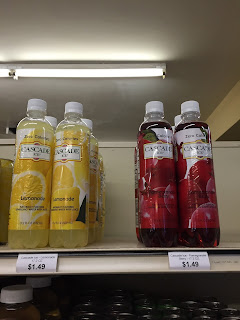1. Who do you plan to interview? Why?
- For my first interview, I plan to juggle words with my primary mentor Joy Kam, who is currently the manager at the Arroyo Food Co-op. This establishment is becoming more so a staple in residential Pasadena than a trend with an expiration date tagged to it. As the Co-op’s goal is to profit from selling the produce of local vendors and kosher companies, such as those grounded in fair-trade ingredients, I plan to analyse the economic background to my senior project idea of urban farming. Since realizing how grassroots farms in the thicket of Los Angeles fit into society, and thus its constant revolution around economic reward and stability, Joy can provide me with valuable information into how the Co-op is held afloat by memberships to the store, partnerships with local businesses, and buying goods in bulk. In general, I wish to clearly see how a farm store can help support efforts of urban farmers and how it must be managed by a person like Joy in order to achieve such an idealistic mission statement. Joy immigrated from China and only but recently began to fight for her store’s acceptance in a tightly regulated city, and so it would be quite interesting in specifically learning the struggles in maintaining a food revolution like that urban farming and how politics (like grabbing a permit for a certain initiative like outdoor movie showings or having a curbside garden free to the public's access) is heavily involved in protecting goals with law.
2. Five questions will be assigned to all seniors to ask. What additional questions do you plan to ask? Ask open-ended questions. What are open-ended questions? Click here!
FIVE QUESTIONS ASSIGNED:
- I’m interested in studying urban farming. What can you tell me about it?
- From your perspective, what could I study that would be significant to other people?
- Who else would you recommend I talk to?
- What kinds of places or activities do you recommend I do for the mentorship component?
- What materials should I read in this field? Who else can I interview?
My touch to the interview:
- How has immigrating to new country in the United States added to your experience in adequately establishing the Arroyo Food Co-op?
- What obstacles did you face in transitioning from one way of life to another? Was anything learnt from such trials in your life to help you in your endeavors at the store?
- What inspired you to tackle this aspect of urban farming? Did any childhood hobby spark this interest, if it is indeed one of yours?
- How do you balance the amount you spend in buying products to stock the shelves with and the profit you accumulate so that you maintain a healthy business that can continue to grow?
- What is your definition of ‘healthy’ in its context here in regards to the bigger picture of urban farming?
- How have you and your store specifically supported local farmers in growing produce on their ‘home’ lots in the city legally and effectively?
- Would you be able to describe the steps taken to order and develop a rapport with a company you plan to buy from?
- In what unique ways has community support grown over the past years in favor of the Arroyo Food Co-op?
- Have you changed the store’s mission statement to abide by any popular opinions?




No comments:
Post a Comment